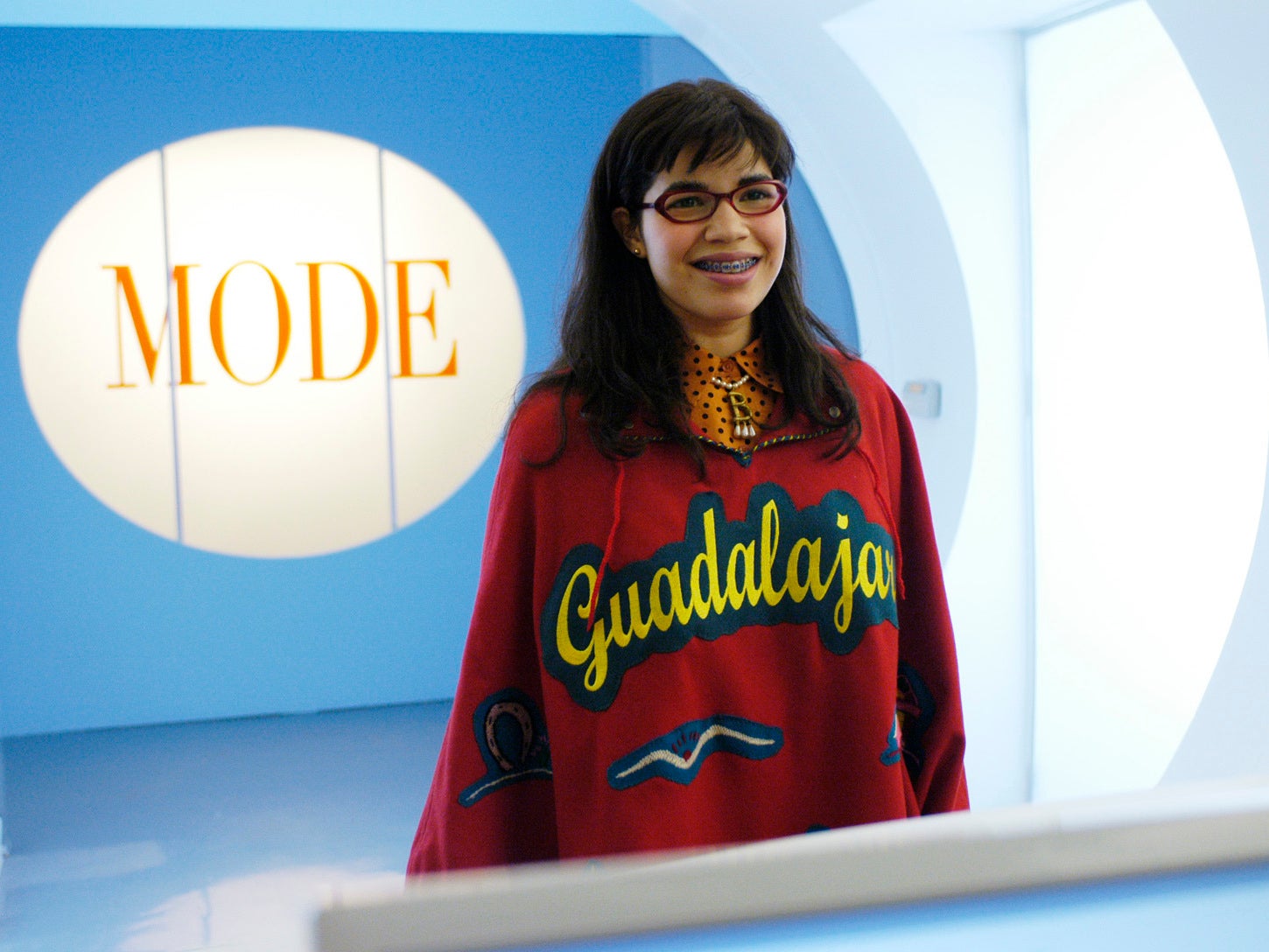For the past few weeks, I’ve been lucky (and privileged) enough to shelter with my family. Every night, we’ve huddled in my parents’ room and watched our favorites: Cinderella (the one produced by Whitney Houston starring Brandy, the only version that matters) Pride and Prejudice (the one with Colin Firth and Jennifer Eyle, also the only version that matters), Anne of Green Gables (the 1980s version, obviously), and finally, the one and only Ugly Betty, starring America Ferrera.
Ugly Betty has always been more than a show to me. From her braces to her wavy, frizzy hair to her well-intentionally bold yet slightly off-putting wardrobe, America Fererra’s Betty Suarez was, like no Latina I’d ever seen, simply herself. A Latinx girl with bookish tendencies, a never-ending work ethic, and a love of writing. Of course, I’d seen Jennifer Lopez, Selma Hayak, and Jessica Alba on screen but I viewed these women as wildly out of my league. With their perfect hair, curvy yet athletic figures, and horas that practically dripped sex, these women more closely resembled figments of Hollywood’s imaginary Latinas than myself or any of the women I know. And while they were certainly hot, they lacked dynamic storylines and any true autonomy, usually playing the maid or sexy alternative love interest.
Ugly Betty is wonderfully different, and something I had never seen on television. It centers a woman who rejects the Latina stereotype, a character who’s value isn’t in her sexuality, who embraces her Latinx identity and individual quirks, even if it means wearing a poncho from Guadelajara. And Ugly Betty didn’t just give one way to be Latinx. Between Betty, her sister Hilda, her nephew Justin, Justin’s father Santos, her father Ignacio, and Sofia (Selma Hayak’s character), these roles break the mold Hollywood too often uses for Latinx characters. A mold that continues to limit how others see us and how we see ourselves.
It’s been 10 years since the show’s finale, and while the outfits and some of the references are definitely outdated (sorry low-rise jeans, never again) Ugly Betty is as relevant as ever. More than just a character, Betty forces us as viewers to question the hypocrisy of a world, and especially a workplace, obsessed with consumption and completely lacking in substance.
I don’t think it’s a coincidence Betty wears a poncho on her first day to work. A traditional piece of clothing from Latin America that has not only been used to stereotype the Latinx community but also has recently been subverted into a fashion must have. By wearing her poncho, Betty exposes the deceptive rules the Latinx community navigates of where and when our culture is appreciated or ridiculed. The beauty and ingenuity of Ugly Betty is that the show plays with these norms with humor and authenticity. As her nephew Justin says in the first episode, “All the stuff you want to do, owning a magazine, doesn’t happen for people like us, unless you’re JLo or something.” But Betty finds a way to succeed without becoming a Latina bombshell or undergoing one of those horrifying now-they’ll-see-me-and-take-me-seriously makeovers – and that’s a story that deeply resonates today.
This world view, this continued freshness isn’t an accident. Ugly Betty was written and developed by two Latinx writers, including the late brilliant Silvio Horto, and produced by both Selma Hayak and America Ferrera. It is only when we are given the opportunity to tell our own stories that we are able to expand how stories are told about ourselves and our communities. Ugly Betty paved the way for more inclusive dynamic television proving that diversity shouldn’t be an afterthought. The fact is when you put people of color in front and behind the camera you simply get good television. Television with characters that are authentic complex and make other characters cis white ones like Mode’s Editor in Chief Daniel Meade even more interesting.
But what makes Ugly Betty so wonderful and great for this moment in time is how it centers goodness. Much of the message of the first season is about the value of family, character transformations (except for Betty), and the value of just being nice. In season one, Betty’s positive spirit and general goodness infiltrate the capitalist, shallow world of a fashion magazine. And without a ridiculous makeover or shopping montage, Betty reforms her misogynist boss into a self-aware ally that supports her. The truth is Betty doesn’t conform to the world she lives in, she subverts it.
While many of us are sheltering in place and worried about our loved ones, it feels good to watch a show where the heroine wins. Where characters get rewarded by simply being nice and to watch TV that doesn’t demonize, tokenize, or scapegoat immigrants. Instead in Ugly Betty the message is simple be who you are and don’t change, just wait for others to catch up.

